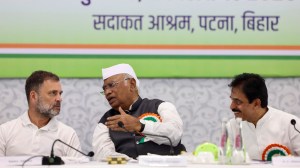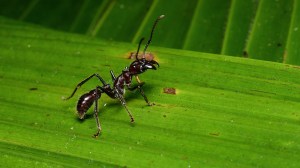We need experts, not activists, said Govt, rejecting all 9 names proposed by SC panel
Does the editor of an environment magazine have the expertise to decide on diversion of forest land?

Does the editor of an environment magazine have the expertise to decide on diversion of forest land? Is it proper to have a foreign national on such a panel? Is a botany scientist with 300 papers more qualified than a doctorate who has written on sociology?
Around these questions, revolves the legal battle the Ministry of Environment and Forests is fighting in the Supreme Court. At the centre of which is the appointment of three “non-official members” to the seven-member Forest Advisory Committee (FAC), a panel to help the government clear applications seeking permission to divert forest land for development activities, including irrigation, mining and power lines.
Asked to do so by the Supreme Court, amicus curiae Harish Salve and the court-appointed Central Empowered Committee recommended nine names calling them “experts’’. However, the Ministry calls them “enthusiastic laypersons’’ and rejected all these names.
In its affidavit, the Ministry argued that the FAC, headed by the Director General of Forests, is a “decision-making committee,” an integral part of the statutory regulatory process.
Therefore, it’s governed by the Ministry’s 2004 guidelines which lay down three criteria: formal qualifications and expertise, relevant professional experience. And the need to clear the “test of independence.” That is, no “pre-disposition to the interests of industry, activists or organisations with agendas.”
The following are the names suggested by the amicus curiae and the CEC which the Ministry has rejected on all three grounds. The Ministry admits that they have been members of other panels but appointed before the 2004 guidelines came into effect:
• Belinda Wright: Well-known wildlife activist, UK national. The government argued that appointees gain the status of “public servants.” The “sine qua non of public service,” the Ministry says, has “to include allegiance to the Constitution since that is the source of all (such) accountability. This allegiance can neither be assured, nor insisted upon, in case of foreign nationals.’’ Also, her organisation, Wildlife Protection Society of India is involved in wildlife research but there is no citation or research published in peer-reviewed scientific journals have been provided.
• Pranay Waghray: He has a Bachelor’s degree in commerce and a diploma in computer application. He has worked in several private companies. He is an activist and journalist on forest and wildlife matters. He has been rejected on all three grounds.
• Bittu Sahgal: He is the editor of Sanctuary magazine. He is a graduate but not in science, argues the Ministry, his professional experience relates to wildlife and environmental journalism.
• Shyam Chainani: He is a BTech in engineering and has a certificate in industrial management. He has been a senior management executive, says the affidavit, in major industrial houses for several decades and is associated with activist organisations on environment and heritage.
• P K Manohar: He has a law degree and a Bachelor’s in Geology, Botany and Chemistry. He is a lawyer by profession, has been instrumental in filing the key PIL in forest cases, says the affidavit.
• Claude Alvares: He has a PhD and has published scholarly work in history, sociology and political economy. He is in various environmental committees set up by courts and the Centre. He runs an NGO called Goa Foundation. He has no prescribed professional qualifications to qualify as an expert in forest matters, says the affidavit.
• S C Sharma: The Ministry says this retired Indian Forest Officer served the government continuously for the last 20 years. “In terms of well-established principles, it is essential that he withdraws from the affairs of the Ministry for some years,’’ says the affidavit.
• P K Sen: Retired Indian Forest Service Officer, expert on forestry and wildlife. The Ministry has requested the court to be permitted to present “some sensitive material (against him) in camera.”
• V R Chitrapoo: He was appointed to the Ministry’s Committee on Infrastructure Enhancement and Prioritisation of Protected Areas relating to wildlife matters but he has not attended the last two meetings. His “commitment is strongly in doubt,” says the affidavit.
In turn, the Ministry has suggested these names:
• J S Singh: Phd and MSc in Botany, currently professor emeritus at Centre for Advanced Botany in Benaras Hindu University. Fellow of Indian National Science Academy, has been awarded the Shanti Swaroop Bhatnagar Award. He has 388 scientific publications and has been PhD guide for 43 doctoral students.
• A S Dogra: Retired Indian Forest Service Officer. Apart from senior positions in the State Forest department, he has been project director under the Integrated Watershed Development Project for 11 years.
• M Kamal Naidu: Retired Indian Forest Service officer, has an MSc in Agriculture, Besides regular positions in the state forest department, he has held faculty positions at IGNFA, Dehradun. He has published over 100 papers on environment, wildlife and forest conservation, and solid and water conservation.
The Court has asked the Ministry to submit a list of all committees that have the “rejected names” as members and is also seeking clarity on whether the FAC is a “decision-making body” or just an “advisory” body.
Photos


- 01
- 02
- 03
- 04
- 05





























